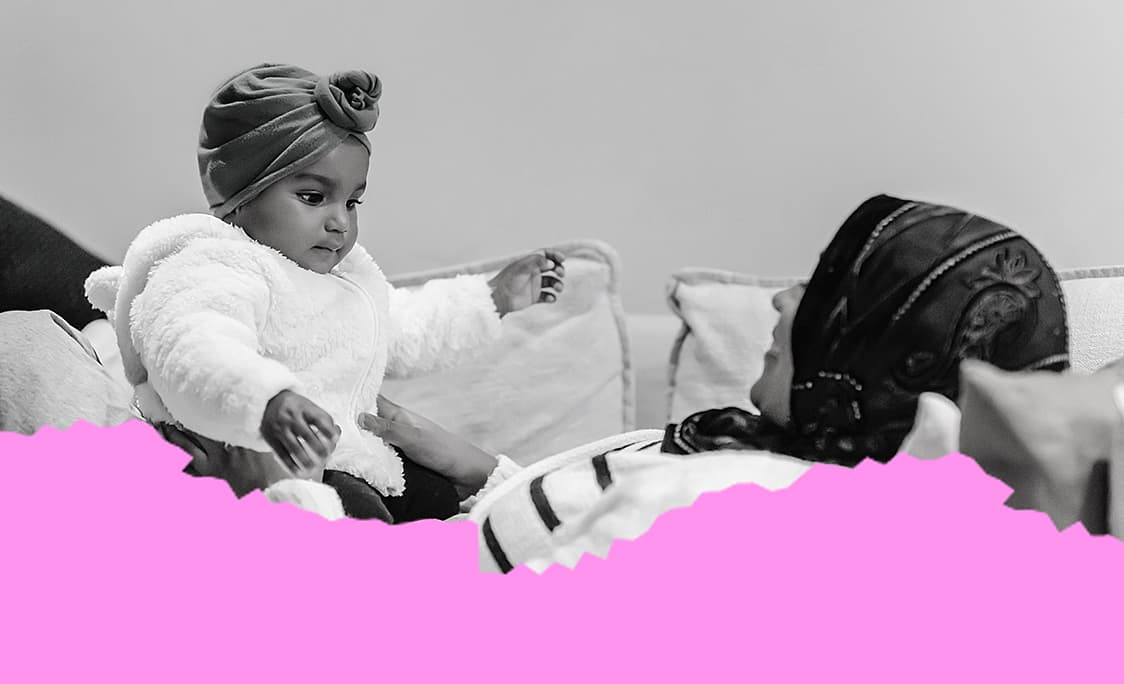“To be like the rest of the women, who display shyness in calling their firstborn. To never be a shameless woman.” – Abubakar Sadiq
Mother-daughter relationships are essential as it is the one relationship that helps a woman map out her future relationships. The Journal of Neuroscience notes that the mother-daughter relationship is known to be stronger than other parent-offspring relationships. It is also one that shifts its nature.
As the years go by, certain tricky turns do arrive. That’s usually because of the generation gap, or when mothers try to protect their daughters by creating specific parameters and their daughters’ rebel.
Document Women had earlier explored naming rights in Hausa practices, where mothers are meant to be shy towards their firstborn children.
Older generations of Hausa women do not address their first children by name. The process of giving a nickname to a child, where the child is called by a nickname, is borne either out of shyness or out of respect for the person after whom the child is named. Hausa mothers do not call their firstborns by their names.
This set the basis for my inquiry into the relationships Northern Nigerian women have with their mothers. I wanted to know if it was a determining factor in mother-daughter relationships in Northern Nigeria.
I spoke with eight women from different tribes and regions of Northern Nigeria about their relationships with their mothers. Most of them agreed that their relationship with their mothers was sometimes rocky or non-existent; about three of them attributed it to the custom and figured that the traditions hamper the relationships.
Elizabeth*, a Law student and make-up artist, said the custom influenced 20 to 30 per cent of her relationship with her mother.
“Mothers find it so difficult to even utter their first child’s name all in the name of deep-rooted tradition. It’s something they can’t do either privately or publicly,” Zuhriya* a writer said. “Yes, it has affected both the mothers and firstborns in northern Nigeria, because to some extent they aren’t so close to understanding what’s hurting them or what they want to do with their lives.”
Some respondents told Document Women that the unwillingness to be modelled as homemakers and take on responsibilities when they were younger has now put a strain on their relationships with their mothers.
“When I was growing up, she wanted to model me into an ideal woman, who is prim and proper and can take care of the house.” said Zainab*, a photographer.
Shamsiya*, an art curator and writer, says she sometimes felt like she and her mother switched roles.
“Some days, she’s my mom; other days, I’m her mum. My relationship is good. She tells me she loves me, and I love her. However, we don’t see eye to eye often. And sometimes, when our roles switch, I crave for my mother.”
Maryam*, a lawyer and poet, attributes the strain on her relationship with her mother to her mother’s belief in societal gender roles and harsh upbringing.
“When I was a child, she didn’t particularly take an interest in my writing. I would write poems and only be able to show my father, she was more interested in my going to the kitchen and cooking, and I didn’t want that, and I also stood against that.”
In my discussions with the respondents, I noted the pressure of being the first child and the Nigerian belief in first children becoming breadwinners and role models for their families. This takes a toll on the mother-daughter relationships in some Arewa homes.
“I would also like to say that this belief of the firstborn later taking care of the last born is very annoying; my youngest sister can do things I can’t do. If I do them, my mother tells me I have to be a role model to her,” Elizabeth* continued.
“First daughters are saddled with a lot of responsibilities, I have to make sure to look out for lapses, and when I had to relocate to work in a different town, the running of the house was no longer smooth. I have to find time on weekends to make sure everyone does the thing they are expected to do, I have to mediate between my siblings, my siblings and my mum, and so often than not, it gets to me, and I don’t want to be my mother’s mother or my sibling’s mother.” Shamsiya agreed.
Farida*A baker and student agree that she is placed under more pressure than her younger siblings, which affects her relationship with her mother.
“I do feel responsibilities are much on me because I’m the eldest and typically in a northern Nigerian family. If the most senior is a female, she’s being regarded as their mom, so any house chores placed on her are left for her to share the work between her siblings. Also, she’s their shield. In terms of protection, she was listening to each one’s troubles and finding solutions. So basically the responsibilities are much,” Zuhriya* a writer, commented.
“There are things I can never discuss with my mum, and that has caused me to make a lot of mistakes as a woman.”
Another common observation in these distorted relationships is that most women didn’t think they could be free with their mothers.
Elizabeth says that she could not tell her mother she had a boyfriend growing up, which is a typical pattern. Most women saw their mothers as authoritative figures they couldn’t have a relationship or friendship with until they grew older.
As mentioned in the study above, all of these women who had rocky relationships with their mothers have grown to understand them, and their relationships with them are much better as they become women themselves.
“I’ve never really liked my mother, but now I’m learning to love her as I grow and understand her better,” Maryam says*
A minority of the women, about 2 women out of the group, said their relationships with their mothers were a bit turbulent but amicable from the onset.
Mary, a mental health advocate and content writer, is one of them.
“We have deep conversations now and then. She seeks my opinion on household and life issues. I am not an emotional person, so I don’t show emotion, although I try. I guess it is not affected by the tradition of mothers and firstborns in Northern Nigeria. We have an elder sister and younger sister relationship and are friends sometimes. However, the respect is still there all the same.”
“The connection between my mother and I is amazing, even though there are some hurdles and as the oldest daughter of a northern Nigerian family, there are some certain things which I wasn’t free talking about to my mother, like marriage, sex education, even about relationship with the other sex.” Shriya reiterates.
One thing is certain though; all the respondents agreed that their relationships with their mothers have shaped their beliefs.
“Because of all the rules my mother had and the fact that she was very disciplined, I am now like that; I have strong principles that people are sometimes shocked by,” Elizabeth* added.
“It has helped me become a kinder and more honourable woman. My mum embodies these traits a lot, and most of the time, you can see it in how she parents or deals with others. She is very kind. It also taught me generosity, giving without a held breath, waiting for an equally generous gesture. She has lived all her life-extending the extra arm. Always.” Zainab* adds as well.
*Names in this essay have been changed to protect the identity of the women interviewed.





